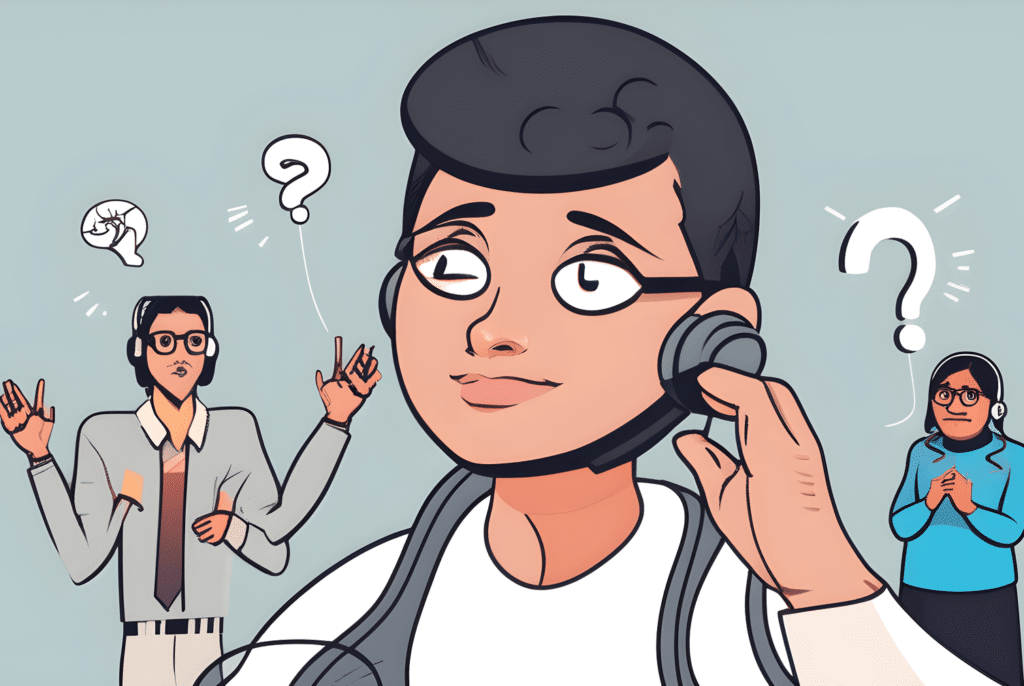Being stood up — whether it’s for a date, a meeting, or a simple get-together — can feel frustrating, disappointing, and sometimes even embarrassing. You’ve made the effort to be there, dressed up, and set aside time, only to find that the person you were meeting doesn’t show up or doesn’t communicate about being late. It’s a situation that many of us face at some point in our lives, and how we respond can significantly affect how we deal with the emotions that come with it.
In this blog post, we will explore different ways to respond to being stood up. Whether you’re looking to manage your emotions, deal with the situation calmly, or learn how to set better boundaries in the future, we’ll provide you with various responses that are both thoughtful and empowering. We’ll cover different scenarios, from handling it with grace to asserting yourself in a way that reflects your worth. Let’s explore some effective ways to handle being stood up, as well as how to turn a potentially negative experience into a learning moment.
Why Does Being Stood Up Hurt?
Before diving into how to respond, it’s important to understand why being stood up can be emotionally painful. The emotional impact comes from several key factors:
- Feeling Disrespected: When someone stands you up, it can feel like your time, energy, and efforts are not valued. This can be especially hurtful if the other person doesn’t communicate or offer an apology.
- Ego and Self-Worth: Being stood up can sometimes feel like a blow to your self-esteem, leaving you questioning why the other person didn’t prioritize you or respect your commitment to the meeting.
- Loneliness or Rejection: If you’re waiting for someone to show up and they don’t, it can lead to feelings of isolation, frustration, or even rejection, especially if the situation involves a romantic or social expectation.
- Time Wasted: There’s also the practical side — when you’ve set aside time and made preparations for something, being stood up can feel like a waste of your valuable time.
Recognizing these emotions can help you better understand why being stood up hurts and also help guide your response in a way that honors your feelings and protects your well-being.
1. Immediate Responses to Being Stood Up
When you’re first stood up, your emotions might be raw, ranging from confusion to irritation. Your initial reaction could vary, but it’s helpful to approach the situation thoughtfully, keeping a sense of control over your emotions.
1.1 Give Them the Benefit of the Doubt
If you’re unsure whether the person has stood you up or if something unexpected happened, the first step is to consider giving them the benefit of the doubt.
- Send a Text or Call: “Hey, I’m here. Are you on your way?”
A polite message or call helps to check if they are running late, which could be the case. Sometimes, unexpected things happen (traffic, work delays, etc.), and a simple text might clear up the misunderstanding. - Wait a Bit Longer: “I’ll wait another 10 minutes to see if they show up.”
It can be worth waiting a little longer before deciding what to do next. If the person is late, they may still show up, and you can avoid the possibility of prematurely abandoning the meeting.
1.2 Send a Calm and Neutral Message
If after some time, there’s still no response or explanation, you can send a message that expresses your feelings without being too harsh or overly emotional.
- Polite Message Example:
“Hey, I was looking forward to our meet-up today, but it seems like something came up. If you’re running late or can’t make it, just let me know. I’ll wait for a little longer before I leave.”
This type of response is neutral, polite, and lets the other person know that you were expecting them but are still waiting for an explanation.
2. How to Handle Your Emotions
Being stood up can bring up some strong emotions. Whether you’re feeling hurt, frustrated, or confused, it’s important to acknowledge your feelings and handle them in a healthy way.
2.1 Take a Deep Breath
Before reacting, take a deep breath. Responding in anger or frustration will only make things more complicated. Give yourself a few minutes to regain composure. This way, you can process your emotions more rationally.
2.2 Avoid Blaming Yourself
It’s easy to fall into the trap of blaming yourself, thinking that you did something wrong or that you weren’t good enough. Remind yourself that being stood up reflects poorly on the other person, not on you. Don’t let the situation affect your self-worth.
2.3 Express Your Emotions (When Ready)
If you feel like you need to express your emotions to the person who stood you up, make sure to do it when you’re calm. If you’re still feeling upset, give yourself time to cool off. When you’re ready, send a message like:
- Honest Response Example:
“I’m honestly really disappointed. I was looking forward to spending time with you, and I don’t feel respected when plans are ignored.”
This honest response lets the other person know how their actions made you feel, without being overly aggressive.
3. Assertive Responses to Set Boundaries
Being stood up could also be a wake-up call for you to evaluate your relationships and how you set boundaries. If this is a repeated behavior, it’s crucial to assert yourself and communicate your expectations for the future.
3.1 Set Clear Expectations for Future Plans
If the person eventually responds or apologizes, it’s an opportunity to assert your boundaries by stating what you expect in the future.
- Example Response:
“I understand things come up, but in the future, please let me know if you can’t make it. I value my time and would appreciate the respect of a heads-up.”
This response is firm but polite, helping to establish the need for better communication moving forward.
3.2 Express Your Needs in Relationships
If this is a pattern of behavior, it’s essential to have a candid conversation about your needs.
- Example Response:
“I value punctuality and respect for each other’s time in my relationships. If this happens again, I will need to reconsider whether we should continue making plans together.”
This response communicates clearly and directly that you expect respect in your relationships. It also sets the stage for understanding how to navigate your interactions moving forward.
4. Moving Forward: How to Cope with Being Stood Up
While being stood up can be upsetting, it’s also an opportunity to learn and grow in your relationships. Here are some ways to move forward and prevent similar situations from affecting you in the future.
4.1 Don’t Take It Personally
One of the most important steps in moving forward is not taking the situation personally. People have different priorities and schedules, and their actions are often a reflection of them, not you. Reaffirm your worth and don’t let the situation damage your self-esteem.
4.2 Reflect on the Relationship
Take some time to reflect on your relationship with the person who stood you up. Is this a one-time mistake or part of a larger pattern? If it’s a repeated issue, it might be worth reassessing whether this person values you and your time as much as you value theirs.
4.3 Practice Self-Care
If you’re feeling down after being stood up, focus on taking care of yourself. Do something you enjoy, whether it’s reading a book, going for a walk, or watching your favorite show. The goal is to refocus your energy on something positive that helps lift your spirits.
- Suggestions for Self-Care:
- Take a walk to clear your mind.
- Treat yourself to your favorite meal or drink.
- Call a close friend or family member for support.
- Watch a movie or TV show that makes you laugh.
4.4 Learn from the Experience
Being stood up can be a teaching moment. It’s an opportunity to learn about setting expectations, communicating your boundaries, and managing your emotions. Use this experience to understand what you need in relationships and how to ensure you are respected moving forward.
4.5 Don’t Be Afraid to Walk Away
If you continue to be stood up or feel unappreciated, don’t be afraid to distance yourself from people who do not value your time. Surround yourself with those who respect and cherish your presence.
5. What Not to Do After Being Stood Up
While it’s important to handle being stood up with grace and maturity, there are a few things you should avoid doing in the heat of the moment.
5.1 Avoid Texting or Calling Repeatedly
It can be tempting to bombard the person with texts or calls to express your frustration, but this can come across as desperate or needy. Instead, wait for the other person to reach out or give you an explanation.
5.2 Don’t Tolerate Repeated Disrespect
If someone stands you up regularly without valid reasons or apologies, it’s essential to stop tolerating this behavior. Repeated disrespect can damage your self-esteem and hurt your emotional well-being.
5.3 Don’t Let It Ruin Your Day
While it’s disappointing to be stood up, don’t let it ruin your whole day. You have the power to choose how to respond to the situation and make the most out of your time, even if the plans fell through.
6. Conclusion
Being stood up is never an enjoyable experience, but how you respond can make a big difference in how you handle the situation emotionally and in your future interactions. Whether you choose to address it with calmness, assertiveness, or humor, remember that you deserve respect and consideration in all your relationships.
By acknowledging your feelings, setting boundaries, and practicing self-care, you can move past the frustration and grow from the experience. In the end, being stood up is just one of life’s many challenges — but how you respond will determine how much power you give it over your happiness.
When in doubt, always remember: your time is valuable, and you are worthy of being treated with respect.



